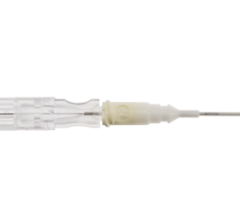September 5, 2007 - The National Institutes of Health has awarded its $5 million Bioengineering Research Partnership award to researchers who aim to make open-heart surgery a minimally invasive procedure by producing instruments that are as minimally invasive as catheters, but which provide the precision and control of open-heart surgery.
Professor Pierre Dupont of Boston University's College of Engineering, cardiac surgeon Pedro del Nido, M.D., at Children's Hospital Boston/Harvard Medical School and microdevice manufacturer Microfabrica Inc. will collaborate to develop instruments and procedures they hope will bring the precision of conventional open-heart surgery to minimally invasive instruments and tools, allowing complex surgical repairs to be made while the heart is still beating.
Under the grant from the National Heart, Lung and Blood Institute, the team is developing robotic instruments that could extend into the heart through needle-sized incisions in the chest and heart walls. Using a joystick controller and real-time medical imaging technology, a surgeon could navigate the robotic instrument through the chambers of the heart to the surgical site and deploy an array of tools from its tip to remove blockages, repair faulty valves and close leaks inside the beating heart.
Dupont is developing the instruments and robotics technology needed to perform these tasks, while partnering with Microfabrica to develop a toolbox of millimeter-scale tools that can perform a variety of delicate repairs.
According to Dupont, the biggest benefit may be the technology’s potential to help all age groups: adults, children and even fetuses. "Working with our clinical partners at Children’s Hospital Boston, we’re developing different instruments for each of these groups," he said. "Fetal surgery is especially exciting since, in certain cases, repairing a heart defect before birth can greatly improve the chances for the heart to develop normally."
For more information: www.nih.gov


 February 12, 2026
February 12, 2026 









